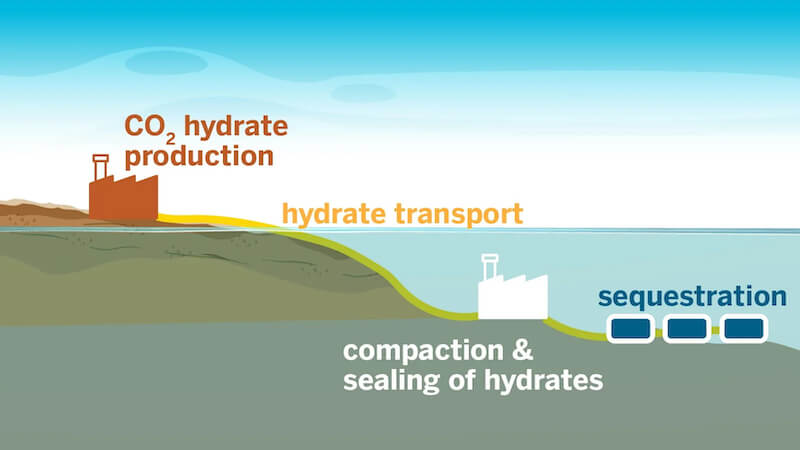
Researchers have developed a new technology to freeze CO2 and sink it in the ocean. The method is said to be more efficient and safer than comparable storage methods.
Scientists at the University of Texas at Austin have recently developed an advanced method for carbon dioxide storage. This method will make it possible for the first time to convert carbon dioxide (CO2) more quickly and safely into water-like forms for storage in the ocean.
The method does not use any chemical additives and is said to be significantly more efficient than the current methods. Instead of injecting the CO2 into underground reservoirs, the research team converted it into stable, ice-like structures.
These are to be stored in the ocean. The technology could therefore make a significant contribution to reducing atmospheric carbon dioxide levels and combating climate change.
In the ocean: Efficient CO2 storage eliminates common dangers
Current methods for storing carbon dioxide rely on storing CO2 in underground reservoirs. However, injecting the gas into our soils entails numerous risks. These include CO2 leaks, groundwater contamination and seismic hazards. This is because the geological conditions for this method are lacking in many regions.
The new technique of so-called hydrate formation addresses these challenges and offers an alternative solution. By accelerating the process sixfold and eliminating the need for chemical additives, the research team made the large-scale storage of CO2 in the ocean simple and safe.
Magnesium serves as a natural catalyst
The researchers used magnesium as a catalyst for their method, which eliminates the need for chemical accelerators. This technology works smoothly with seawater and does not require complex desalination processes, which ultimately makes implementation easier.
The stable thermodynamic conditions on the seabed protect the hydrates from decomposition, making storage safe and possible over the long term. Governments around the world could use the method and thus make carbon dioxide storage accessible to all coastal states.
The rapid formation of hydrates also has potential for other applications such as desalination, gas separation and gas storage. The researchers have already filed patents for the technology and are considering founding a start-up company to commercialize it.
Also interesting:
Source: https://www.basicthinking.de/blog/2024/07/20/effiziente-co2-speicherung/


